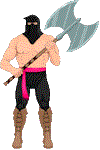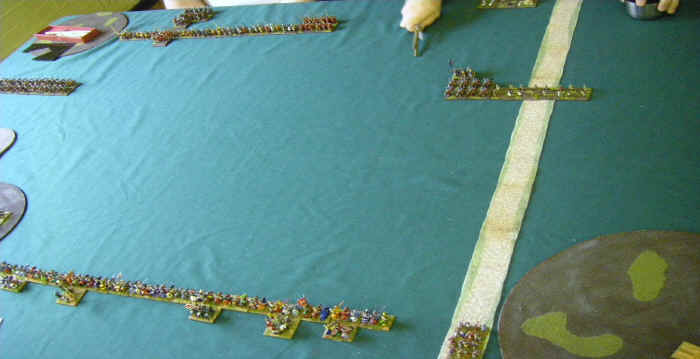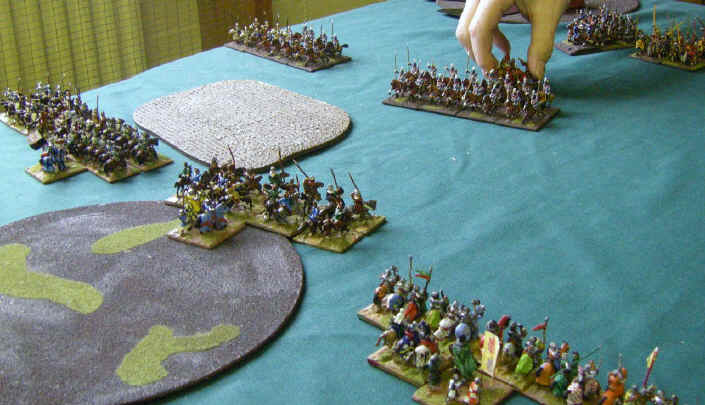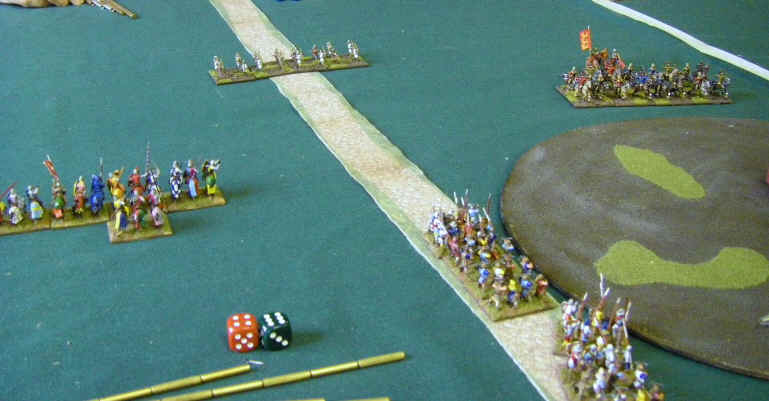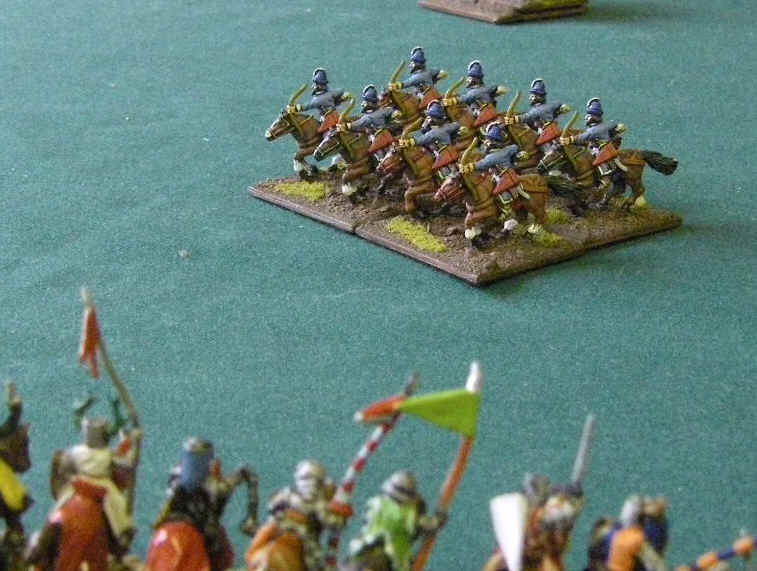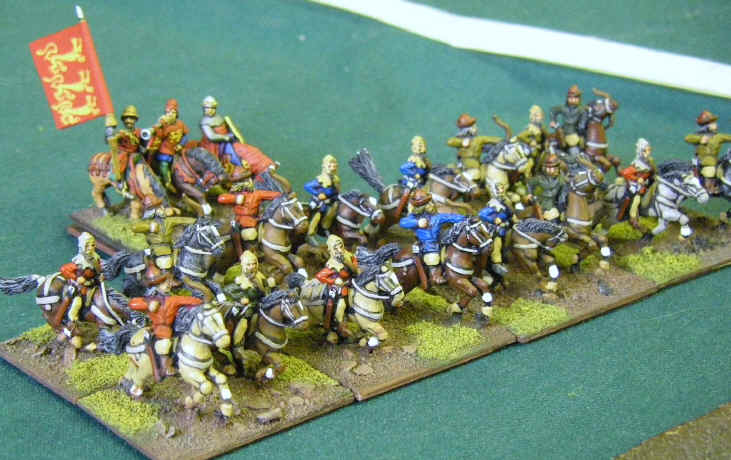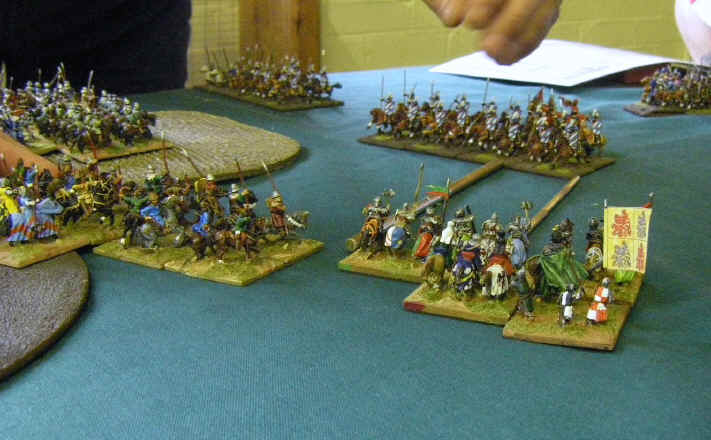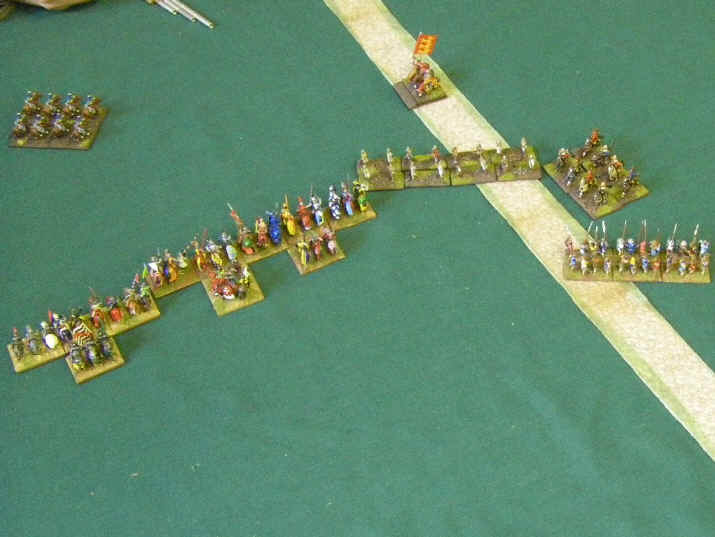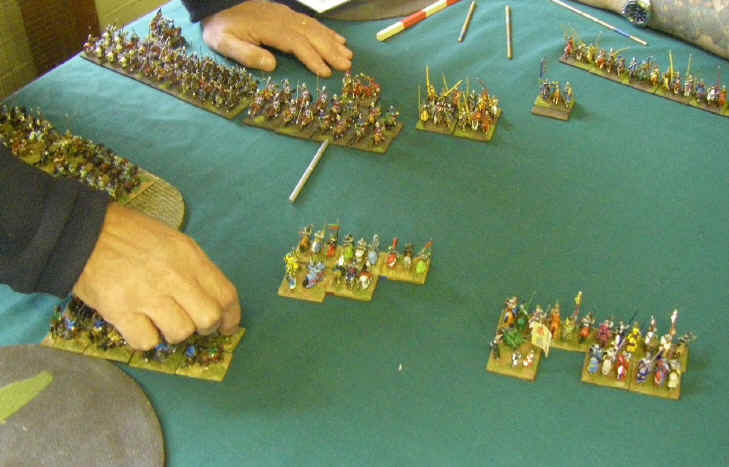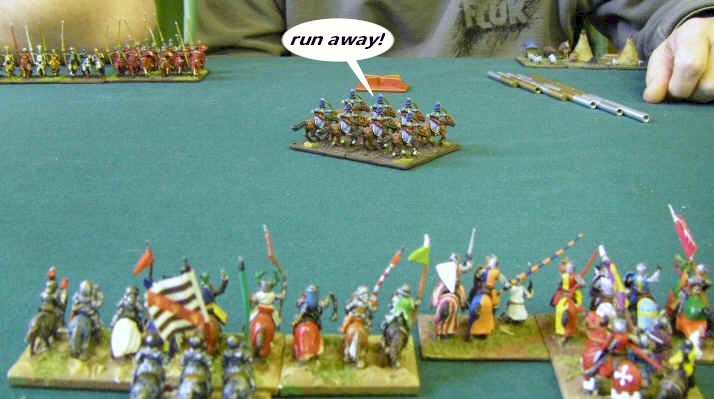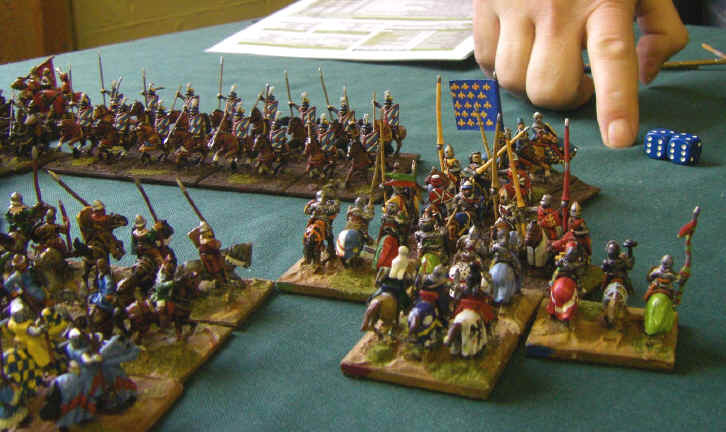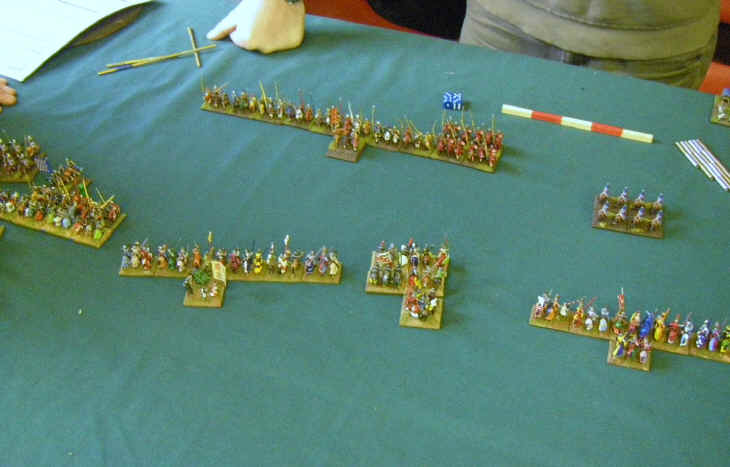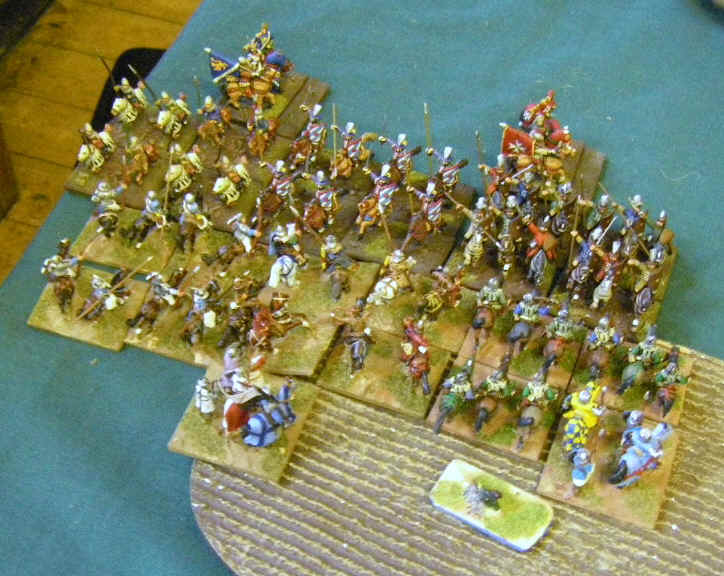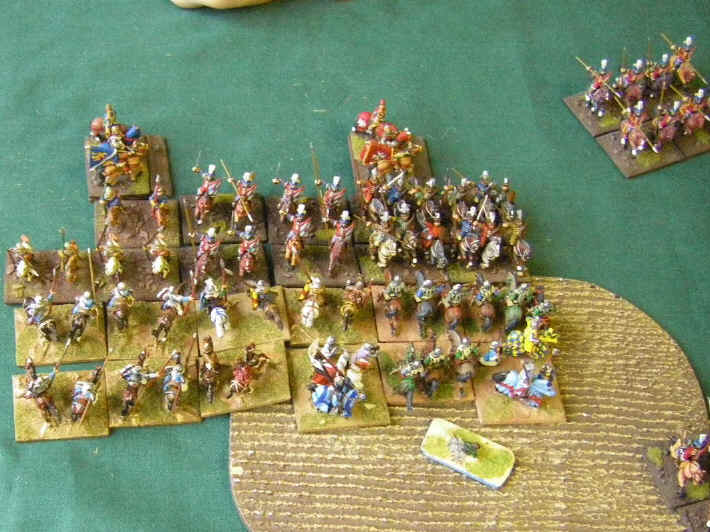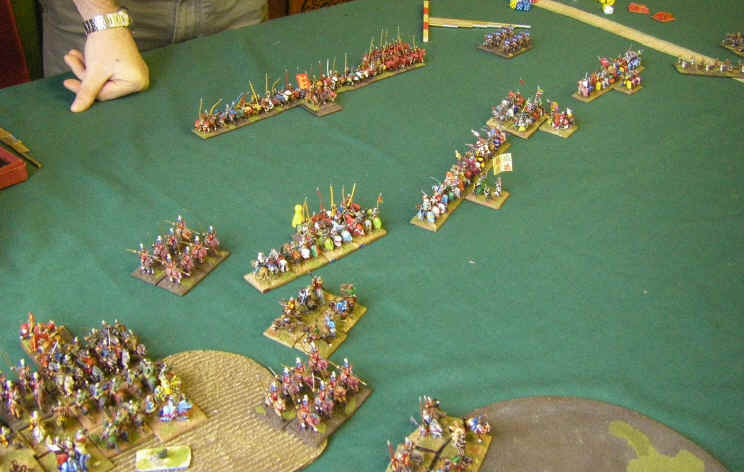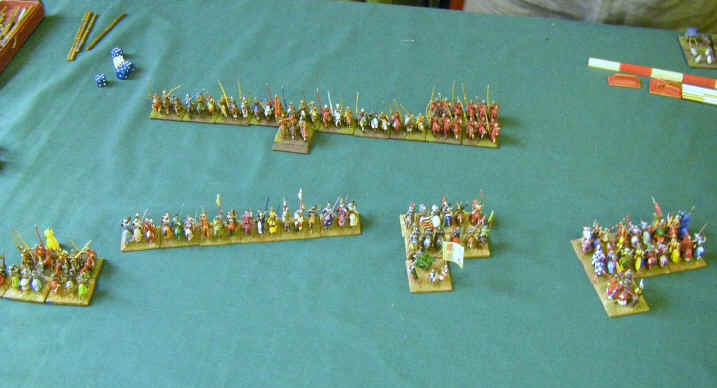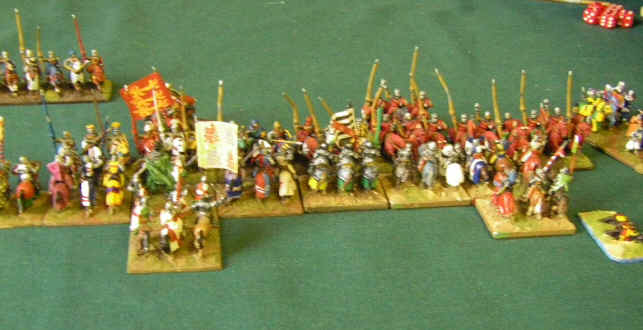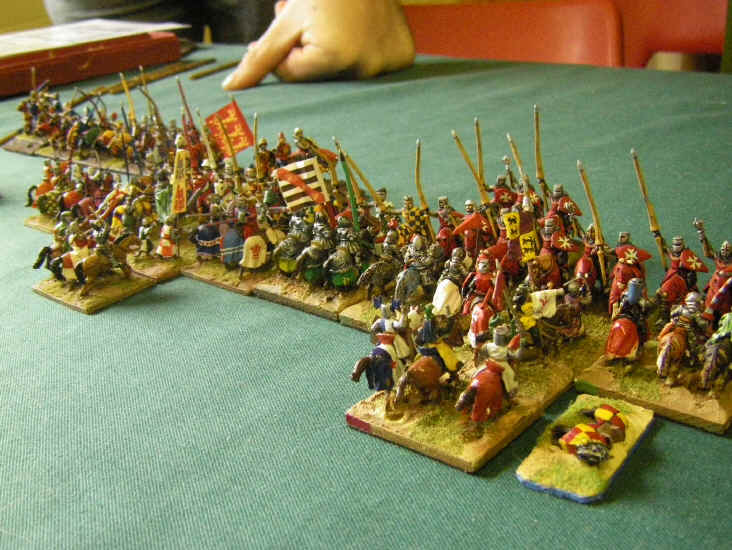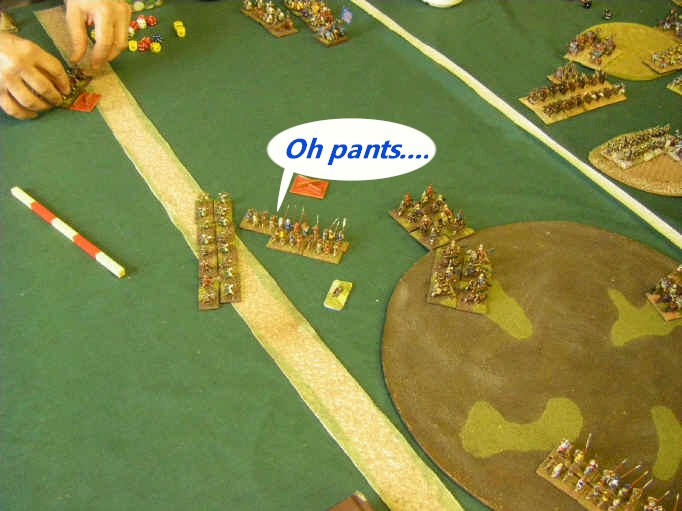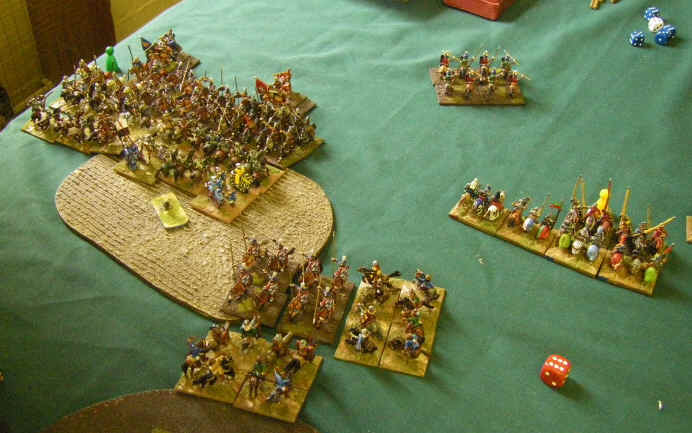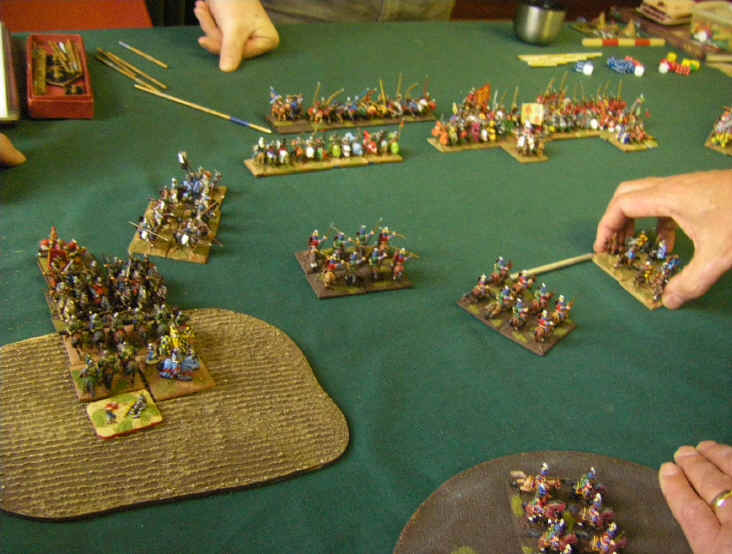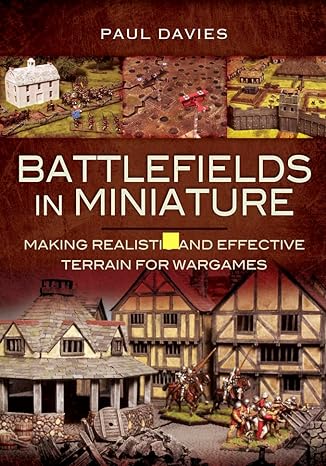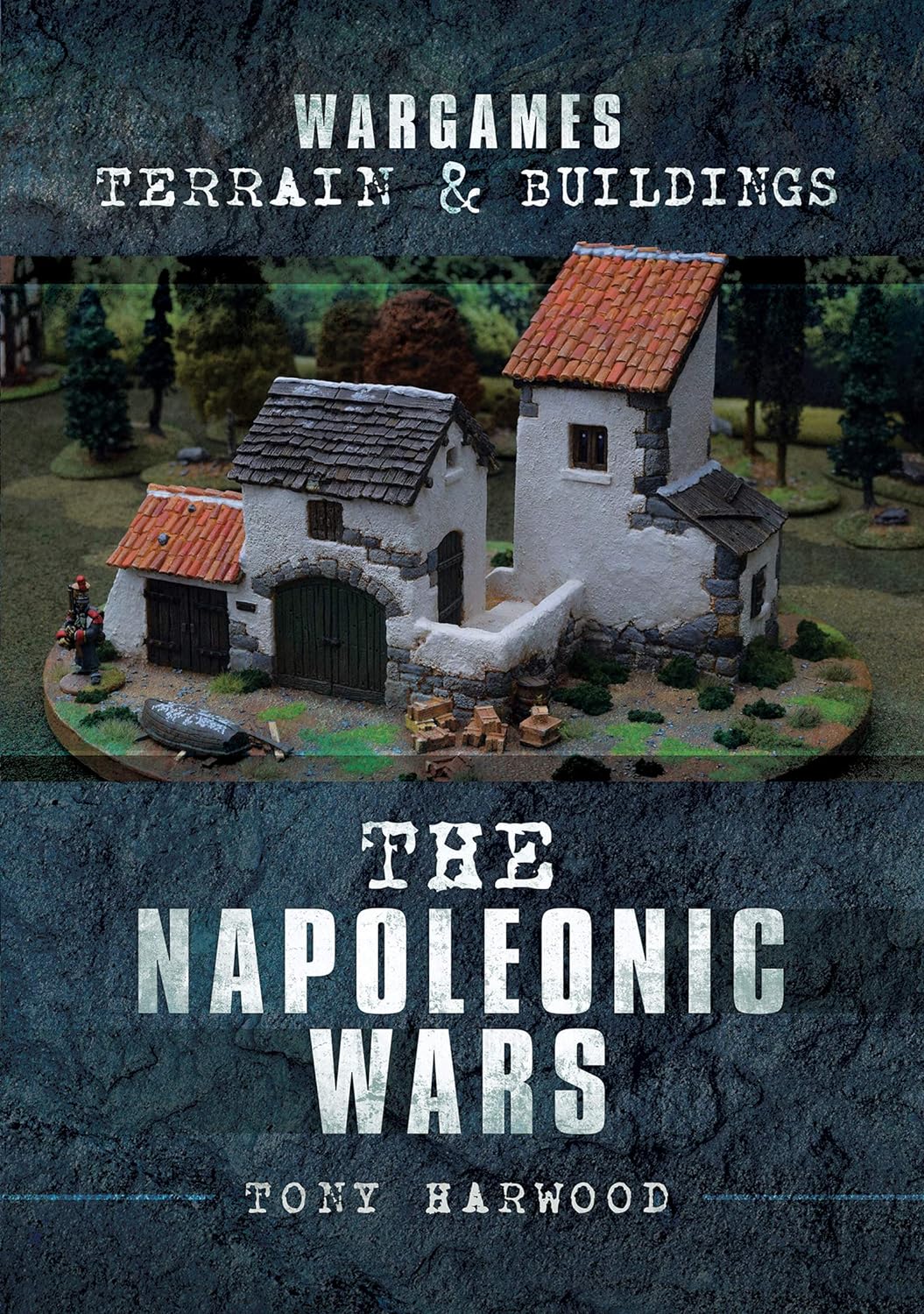Field of Glory Wargaming at Oxford Doubles, 2009
Fairly sketchy reports this time as there's been a delay in publishing them and some of the games were a bit non-descript.
Following our almost-success at Burton with Classical Greek Spartans we picked a clunky Polish army to take on the expected Ottoman and knightly hordes in this Eternal Empire themed competition.
The theory behind the list was that we wanted to have as many knights as possible to outmatch any enemy knights, and then hold our own across the rest of the table with half-decent Lithuanian LH and some blocks of mixed foot spear and crossbowmen.
The knights included two chunky 6-strong units to take casualties in melee and also go 5+1 against shooters to fill the table.
Game 1 saw us facing .... Later Hungarians who's list is available here
Pictures of L Hungarian Troops from my Ancients Photo Directory
You can rate the quality of the above figures by clicking on any of the pictures and then clicking on the 5-star voting buttons. Your ratings will be seen by hundreds of other gamers and will help them select the best figures for their armies!
As we would soon find was the norm, there was no real terrain of note on table, and our enemy was mostly LH - and better than ours generally. The Hungarians kept their knights back, and pushed forward on both flanks with LH & (on their right) Cv as well.
With our own cavalry rushing through some rough ground, we hoped to have an early edge against the Hungarians, but they also brought up their Cavalry as well.
On the other wing we were taking advantage of what terrain there was to push a line of spearmen down the road, and hold our flank against greater numbers as the knights charged forwards.
The Hungarians put on a display of better painted troops to intimidate us .
Astounding!
Adding in our own knights was hopefully going to tip the LH battle back in our favour.
As our knights advanced across the billiard table, we struggled to keep our line joined up and Hungarians pushed at the gaps trying to sneak through
They too threw knights into the standoff developing on our left. Maybe our extra unit of knights could also get drawn into the combat?
Better painted or not, the Hungarians still had to retreat eventually as our wall of steel charged forward.
The first two units to clash were tow identical knight units - and of course, this meant a swift decisive result as we killed 2 bases in the first 2 rounds of combat !
As the knights moved forward, the greater numbers of our Poles started to look like a very clever idea.
Time to initiate another almost exactly equal combat..
Time for us to lose this time !
With no real way to stand up against the better quality Hungarian LH our flank started to falter - but hopefully we could redress the game by overwhelming the enemy knights with our far greater numbers?
The knights crept together slowly
The two lines clashed together- and we got the worst of it this time - big-time!
We were losing bases and cohesion whilst the Hungarian knights blithely ignored our greater numbers and overlaps. As one unit of our knights fell bizarrely to fragmented despite only fighting on a narrow frontage, a flank charge by LH tipped it over the edge and the end of our line unraveled..
Our flank holding force was now being beaten up as well, with no generals on either side to bolster troops, the Hungarian LH was winning through an ability to maneuver itself into situations where they could shoot without reply on a regular basis.
Each time we managed to gang up on the Hungarians, they passed their cohesion tests with ease...
Soon they were round the back and causing havoc. With our knights unable to do the business, the game was lost in a flurry of dice.
Post Match Summary
Well, whaddya say? Lose slowly & disengage where you have a disadvantage, win where you have greater numbers might seem a good plan, but when you lose in both places you are nailed.
Hannibal's Post Match Analysis
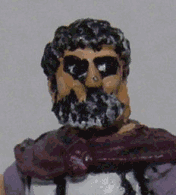 Your
army wasn't big enough to fill the table so you weren't able to force the enemy
to take on your best stuff before they got into your worse stuff.
Your
army wasn't big enough to fill the table so you weren't able to force the enemy
to take on your best stuff before they got into your worse stuff.
And your knights rolled crap dice anyway.
NEXT!!!
... we later returned for the next round
The Ancient Army List Index
The Rise of Rome (280 BC to 25 BC) Mid Republican Roman ; Late Republican Roman ; Gallic ; Pyrrhic ; Later Carthaginian ; Ancient Spanish ; Later Macedonian ; Later Seleucid ; Later Ptolemaic ; Attalid Pergamene ; Numidian or early Moorish ; Pontic ; Early Armenian ; Parthian ; Later Jewish ; Illyrian ; Spartacus Slave Revolt ; Bosporan ;
Storm of Arrows - Western Europe in the Later Middle Ages (1300 AD to 1500 AD) Medieval French ; 100-yrs War English (Continental) ; 100-yrs War English (Britain) ; Later Medieval Scots ( Britain) ; Later Medieval Scots (Continental) ; Later Scots Isles & Highlands ; Medieval Welsh ; Later Anglo-Irish ; Medieval Irish ; Low Countries ; Later Medieval German ; Italian Condotta ; Swiss ; Free Company ; Medieval Burgundian ; Medieval Danish ; Medieval Swedish ; Medieval Castilian ; Medieval Crown of Aragon ; Medieval Portugese ; Later Granadine ; Navarrese ; Ordonnance French ; Wars of the Roses English ; Ordonnance Burgundian ; Santa Hermandad Nueva Castilian
Immortal Fire - The Greek, Persian & Macedonian Wars (550 BC - 146 BC)
Classical Greek ;
Early Achaemenid Persian ;
Lydian ;
Thracian ;
Syracusan ;
Early Carthaginian ;
Skythian or Saka ;
Kyrenean Greek ;
Late Dynastic Egyptian ;
Alexandrian Macedonian ;
Later Achaemenid Persian ;
Classical Indian ;
Early Successor ;
Early Sarmatian ;
Galatian ;
Hellenistic Greek ;
Graeco-Bactrian ;
Graeco-Indian ;
Indo-Greek :
Legions Triumphant - Imperial Rome (25 BC to 493 AD) Dominate Roman ; Principate Roman ; Foederate Roman ; Later Sarmatian ; Early German ; Dacian or Carpi ; Ancient British ; Caledonian ; Early Alan ; Jewish Revolt ; Sassanid Persian ; Kushan or Indo-Skythian ; Palmyran ; Early Frankish, Alamanni, Burgundi, Limigantes, Rugian, Suevi or Turcilingi ; Western Hunnic ; Early Visigothic & Early Vandal ; Early Ostrogothic, Herul, Sciri or Taifali ; Early Anglo-Saxon, Bavarian, Frisian, Old Saxon or Thuringian ; Gepid or Early Lombard ; Early Scots Irish ; Early Pictish ; Hephthalite Hunnic ;
Swords & Scimitars - The Crusades (1096 AD to 1311 AD) Early Crusader ; Later Crusader ; Fatimid Egyptian ; Georgian ; Seljuk Turk ; Cuman ; Komnenan Byzantine ; Post Latin Conquest Byzantine ; Ilkhanid Mongol ; Mamluk Egyptian ; Cilician Armenian ; Syrian States ; Khwarazmian ; Ayyubid Egyptian ; Middle Serbian ; Middle Bulgarian ; Medieval Cypriot ; Latin Greece ; Pecheneg ;
Eternal Empire - Eastern Europe and the Rise of the Ottomans (1300 AD to 1500 AD) Early Ottoman Turkish ; Later Ottoman Turkish ; Tatar ; Later Russian ; Later Serbian Empire ; Later Bulgarian ; Later Lithuanian ; Later Polish ; Later Teutonic Knights ; Catalan Company ; Middle Hungarian ; Moldavian or Wallachian ; Albanian ; Timurid, White Sheep Turcoman or Black Sheep Turcoman ; Later Hungarian ; Hussite ;
Decline & Fall - Byzantium and Islam (493 AD to 1071 AD) Early Byzantine; Maurikian Byzantine ; Thematic Byzantine ; Nikephorian Byzantine ; Later Moorish ; Later Visigothic ; African Vandal ; Italian Ostrogothic ; Early South Slav ; Lombard ; Avar ; Arab Conquest ; Early Bulgar ; Ummayad Arab ; Abbasid Arab ; Early North African Dynasties ; Khurasanian Dynasties ; Bedouin Dynasties ; Dailami Dynasties ; Pecheneg ; Ghaznavid ; Western Turkish (includes Khazar);
Wolves From The Sea - The Hairy European Dark Ages Post Roman British ; Early Welsh ; Later Scots Irish ; Merovingian Frankish ; Later Pictish ; Early Slavic ; Middle Anglo Saxon ; Astur Leonese ; Andalusian ; Early Navarrese ; Carolingian Frankish ; Viking ; Magyar ; Great Moravian ; Early Scots ; Rus ; Norse Irish ; Early Medieval French ; Early Medieval German ; Norman ; Early Polish ; Anglo Danish ;
Swifter Than Eagles - The Biblical Book Nubian ; Early Libyan ; Later Sumerian or Akkadian ; Early Nomad Allies ; Old or Middle Kingdom Egyptian ; Hyksos ; Mitanni ; Syro-Canaanite ; New Kingdom Egyptian ; Later Minoan or Early Mycenaean ; Hittite Empire ; ; Middle or Early Neo-Assyrian ; Later Mycenaean or Trojan ; Sea Peoples ; Philistine ; Phoenician Allies ; Neo-Hittite And Aramaean ; Later Hebrew ; Mannaean Allies ; Libyan Egyptian ; Urartian ; Median ; Neo-Elamite ; Proto-Arab Allies ; Cimmerian or Early Skythian ; Neo-Assyrian Empire ; Phrygian Allies ; Kushite Egyptian ; Neo-Babylonian Empire ;
Oaf of Fealty - Early Medieval Europe Feudal Catalan and Early Crown Of Aragon ; Early Hungarian ; Taifa Andalusian ; Feudal Navarrese and Aragonese ; Feudal Castilian Leonese or Portuguese ; Fanatic Berber ; Italo-Norman ; Feudal French ; Imperial German ; Feudal German ; Communal Italian ; Papal Italian ; Early Scots Isles And Highlands ; Feudal Scots ; Early Russian ; Feudal Polish ; Anglo-Norman ; Later Welsh ; Early Lithuanian or Samogitian ; Wendish Prussian or Estonian ; Early Medieval Frisia and Other Free Cantons ; Post-Viking Scandinavian ; Early Plantagenet English ; Later Sicilian ; Early Medieval Irish ; Early Anglo-Irish ; Early Teutonic Knights ; Mongol Invasion ; Early Granadine ; Middle Plantagenet English ;
Empires of The Dragon - China, Korea and Japan Erlitou-Shang Chinese ; Early Northern Barbarian Allies ; Early Zhou Chinese ; Yayoi Japanese ; Early Horse Nomad ; Ko Choson Korean ; Warring States To Western Han Chinese ; Qiang And Di ; Three Kingdoms Korean ; Eastern Han Chinese? ; Three Kingdoms W Jin And S Dynasties Chinese ; Kofun Nara Japanese ; Northern Dynasties Chinese ; Later Hindu North Indian ; Later Hindu South Indian ; Central Asian City States ; Western Wei To Early Tang Chinese ; ; Later Horse Nomad ; Tibetan ; Nepalese Allies ; Parhae Korean ; Late Tang To Five Dynasties Chinese ; Khmer Or Champa ; Thai Allies ; Nanzhao ; Pyu Burmese Allies ; Koryo Korean ; Early Heian Japanese ; Pagan Burmese ; Liao ; Song Chinese ; Xi Xia ; Ghurid Afghan ; Jin ; Late Heian To Muromachi Japanese ; Japanese Warrior Monk Allies ; Mongol Conquest ; Moslem Indian Sultanates ; Medieval Indonesian Or Malay ; Yuan Chinese ; Medieval Burmese ; Ming Chinese ; Yi Korean
Blood and Gold - The Americas Olmec ; Teotihuacan ; West Mexican ; Zapotec or Mixtec ; Toltec ; Chinantec ; Aztec ; Tarascan ; Tlaxcalan Confederacy ; Mayan ; Mochica ; Chanca ; Chimu ; Hatun-Colla ; Canari ; Inca ; Mapuche or Araucanian ; Amazonian Forest Tribes ; Tupi ; Chichimec ; Pueblo Culture ; Mound-Builder Culture ; South-Eastern Woodland Culture ; Timucuan ; Eastern Woodland Culture ; Plains Culture ; Pacific North-West Culture
View My Stats for My FoG Pages
